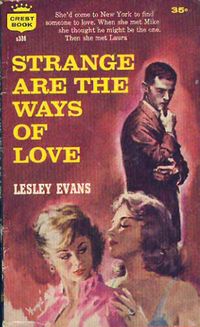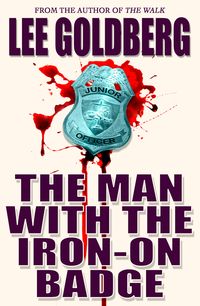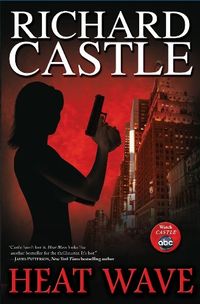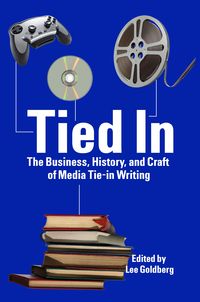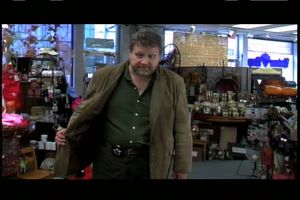 My friend Michelle Gagnon — the lovely, lethal, and talented author of the Special Agent Kelly Jones series — has a new thriller out entitled KIDNAP AND RANSOM that critics are already calling her best novel yet. So I thought this would be a good time to ask her about her work, her craft, and her take on where the business is going.
My friend Michelle Gagnon — the lovely, lethal, and talented author of the Special Agent Kelly Jones series — has a new thriller out entitled KIDNAP AND RANSOM that critics are already calling her best novel yet. So I thought this would be a good time to ask her about her work, her craft, and her take on where the business is going.
LEE: The old adage is "write what you know," but the heroine of your books is a kick-ass FBI Special Agent. You've been everything BUT that… a dancer, model, dog walker, personal trainer, bartender, etc. Is writing about Kelly Jones purely an escapist fantasy for you?
MICHELLE: So true, I’m clearly in way over my head. The smart thing would have been to set a book in a Russian supper club starring a modern dancer and call it a day.
Here’s the thing: with THE TUNNELS, I initially set out to write a college coming of age story. But I kept stalling out after twenty or so pages. Each time I went back and tried a different approach, starting with a different scene or tweaking the characters…and each time, I got the same result.
Then one night, I had two of my characters walking through this abandoned tunnel system under the university. And I almost inadvertently killed one of them off. I sat back, re-read what I’d written, and shrugged, figuring I might as well see how it played out. A few pages later FBI agent Kelly Jones walked on to the scene, and the story was off and running. I completed a rough draft within a month.
In retrospect, even though it was entirely unintentional, I feel lucky to have stumbled upon choosing an FBI agent as one of my main characters, because she has the capacity to go almost anywhere. It’s enabled me to have books set in the Berkshires, Arizona, and now Mexico City. And although I’m far from an expert, I’ve done a ton of research on FBI procedures, spent time at the FBI Citizens Academy and Quantico, and had an agent vet every one of my books for accuracy. Although that being said, my favorite quote was from a career FBI agent who said that if I really wrote about what she did all day, the book would only be useful as a sleep aid. I stay true to their procedures as much as possible, but take license when the story calls for it. 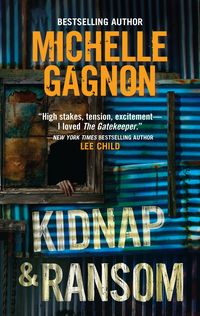
LEE: This latest book, KIDNAP AND RANSOM, is already being hailed as your best work. Wasn't this one inspired by a true story?
MICHELLE: Absolutely it was. While researching border issues for THE GATEKEEPER, I stumbled across an article detailing the kidnapping of Felix Batista. Batista was a world-renowned hostage negotiator who had personally secured the release of over a hundred kidnap victims. While in Saltillo, Mexico for a security conference, he walked out of a restaurant one night, was pushed into the back of a van, and hasn’t been seen or heard from since. The irony of the story grabbed me—the hero becoming the victim, an expert suddenly forced into the position he’d saved so many people from. Stranger still was the fact that his kidnapping wasn’t proceeding normally—there was no ransom demand, and no one claimed responsibility for seizing him. It was a true mystery, and I always find those irresistible. Mind you, in KIDNAP & RANSOM every other aspect of his abduction was fictionalized, and the character of Cesar Calderon is not meant to represent him in any way, shape, or form. Hopefully Mr. Batista will be reunited with his family soon.
LEE: Your books are all mass market, paperback originals. But the talk in publishing circles these days is that paperbacks may be an endangered species, soon to be replaced by ebooks. What's your take on that?
MICHELLE: Oh no, I’m doomed! After your Bouchercon ebooks panel, we discussed the fact that you stopped buying paperbacks once you got an ereader. I was an early adopter myself: I received a first generation Sony Reader, Kindle, and iPad as presents over the past few years. Yet I’ve still been buying mass market books. I always bring a paperback on planes to carry me through the inevitable forty-five minutes between take-off and landing when electronic devices must be turned off, or to read at the beach, or in the bathtub. I’ve pretty much stopped buying trade paperbacks, and I usually only buy a hardcover novel if I’ve already read it electronically and loved it so much that I felt compelled to add it to my collection.
So I’m not sure if the mass market format is truly going the way of the eight track. I’d love to see a future where books are bundled in a few different formats—for example, receiving an audio, ebook, and mass market paperback editions of the same book for a certain price. While I love hardcovers, they’re bulky, unwieldy, and really only designed to be read at home- wouldn’t it be great if you could also have an electronic copy of the same novel when you’re traveling, and the ability to switch to the audio version for a long car drive?
LEE: You're an active presence on Facebook, you're a regularly blogger…how important is keeping yourself front-and-center on the web for an author's career these days?
MICHELLE: I think it’s critical, although it can also be exhausting. I’ve tried to be better about turning off my wireless access while I’m writing, and I don’t get on the computer at all after 5pm. Now I share my Thursday slot on THE KILL ZONE blog with the extremely talented Jordan Dane, because I was becoming overwhelmed by the weekly posts (I don’t know how you do it, Lee!)
For Facebook and Twitter, I’ll post articles or other stuff that I stumble across that strikes me as interesting. Even though those networks serve as my virtual watercooler, I’m pretty sure that most of my friends and followers aren’t desperate to know what I ate for breakfast, or how much sleep I got, so I keep those types of posts to a minimum. I have an unfortunate tendency to be easily distracted. So I think that although authors need to capitalize on those resources, it’s necessary to strike a balance, too.
 My friend Paul Levine reveals in an interview at Top Suspense that he became a novelist by writing what he knew…and wasn't so wild about anymore.
My friend Paul Levine reveals in an interview at Top Suspense that he became a novelist by writing what he knew…and wasn't so wild about anymore.
